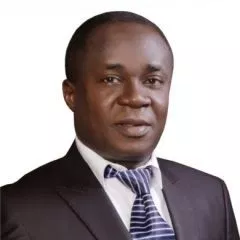GDP: Budget implementation, Forex stability, others contribute to economy growth in Q3-Uwaleke

As Nigeria’s economy grew by 1.81 per cent from a year earlier in the third quarter of 2018, Professor of Capital Market, Professor Uche Uwaleke, has said the contributions of the non oil sector to the new Gross Domestic Growth (GDP) growth may have been helped by the implementation of the 2018 budget, relative stability in the exchange rate as well as the Central Bank of Nigeria’s (CBN’s) interventions in the real sector.
The latest GDP growth showed that the non-oil sector of the economy continued its growth pattern in the third quarter of 2018, moving from 2.05 per cent recorded in the second quarter to 2.32 per cent.
Prof. Uwaleke, explained that the third quarter stastics is better than 1.5 per cent recorded in the second quarter (Q2), and marked an end to the downward trend in the economic growth noticed since the first quarter of 2018.
Commenting further on this development, the first professor of Capital Market in Nigeria stated that the performance of the nonoil sector where marginal improvements were recorded in manufacturing, especially cement production, Transportation and agriculture.
“This outcome may have been helped by the implementation of the 2018 budget which kicked-in at the beginning of the third quarter, the relative stability in the exchange rate as well as the CBN’s interventions in the real sector.”
Although, he pointed out that the growth is still weak and fragile particularly concerning the sectors that have strong linkages to jobs, adding that the performance of the financial services sector which is critical to the economy is disappointing.
“Going forward, there is the need to vigorously implement the capital component of the 2018 budget, invest more in education and health sectors which are lagging, tackle the incessant farmers-herdsmen clashes weighing down on food production and enhance access to credit by target beneficiaries of the various CBN intervention schemes.
“Overall, improvement in the ease of doing business will go a long way in increasing the risk appetite of financial institutions in Nigeria which will positively rub off on GDP growth”, he said.
According to the third quarter gross domestic product report released by the National Bureau of Statistics, the nation’s GDP grew by 1.81 per cent (year-on-year) in real terms in the third quarter of 2018. Compared to the third quarter of 2017 which recorded a growth of 1.17 per cent, there is an increase of 0.64 per cent points” the report read.
“The second quarter of 2018 had a growth rate of 1.50 per cent showing a rise of 0.31 per cenr points. Quarter on quarter, real GDP growth was 9.05 per cent.
“In the quarter under review, aggregate GDP stood at N33, 368,049.14 million in nominal terms. This performance is higher when compared to the third quarter of 2017 which recorded a GDP aggregate of N29, 377,674.03 million thus, presenting a positive year on year nominal growth rate of 13.58 per cent.
“This growth rate is higher relative to growth recorded in the third quarter of 2017 by 2.88% points and higher than the proceeding quarter by 0.01% points with growth rates of 10.70% and 13.57 per respectively.” Motolani Oseni
“This growth rate is higher relative to growth recorded in the third quarter of 2017 by 2.88% points and higher than the proceeding quarter by 0.01% points with growth rates of 10.70% and 13.57 per respectively.” Motolani Oseni








